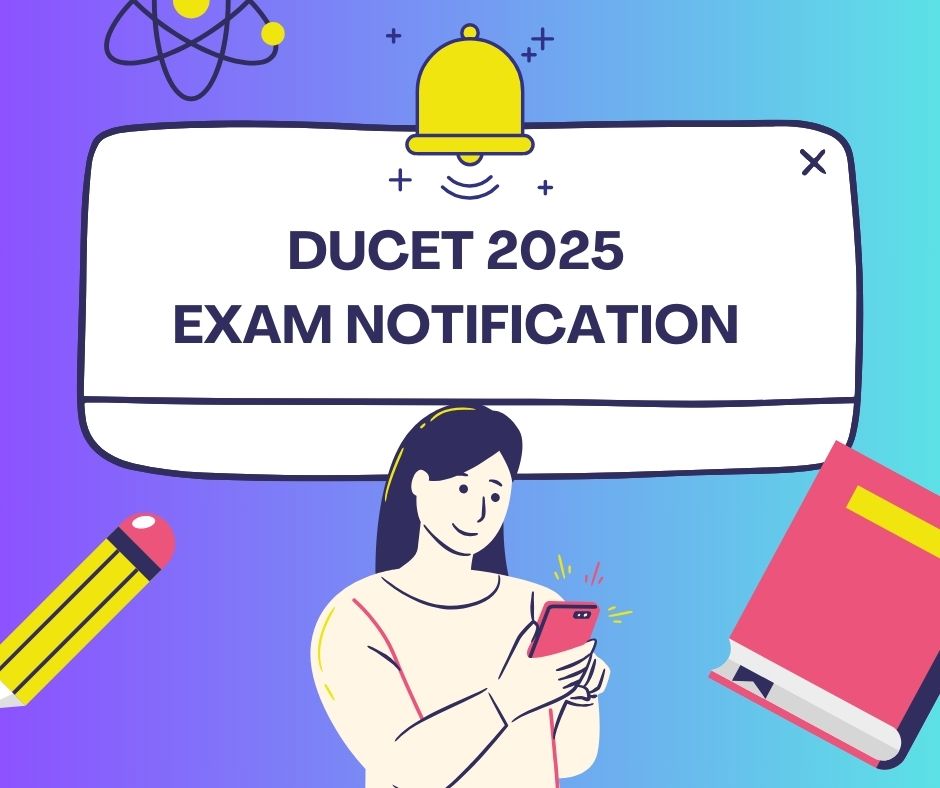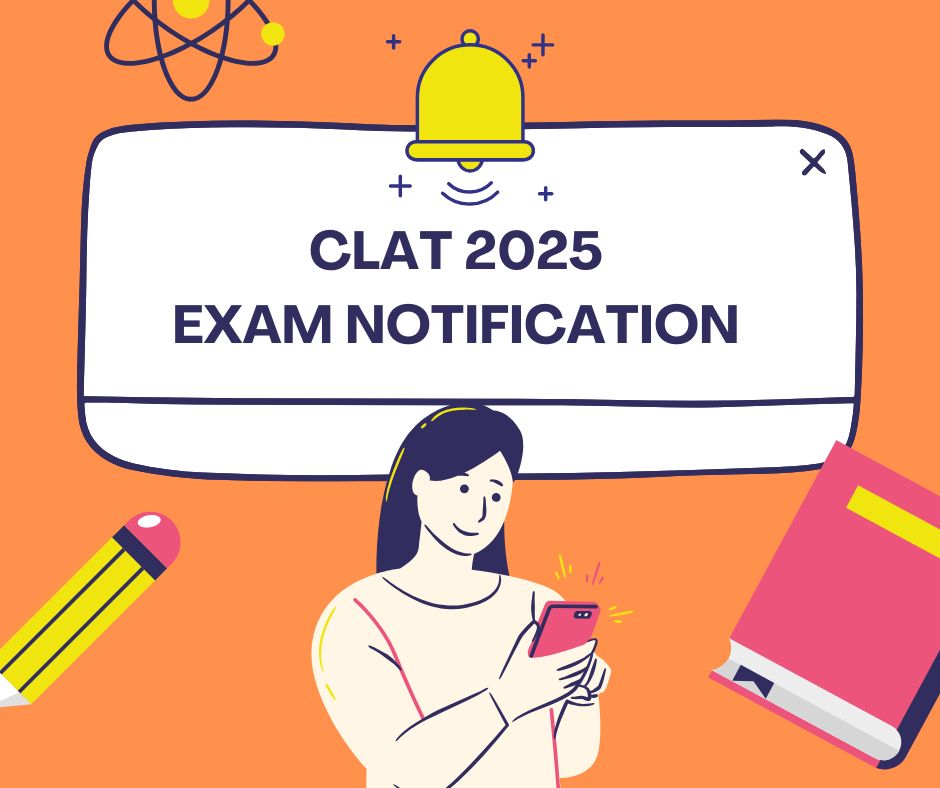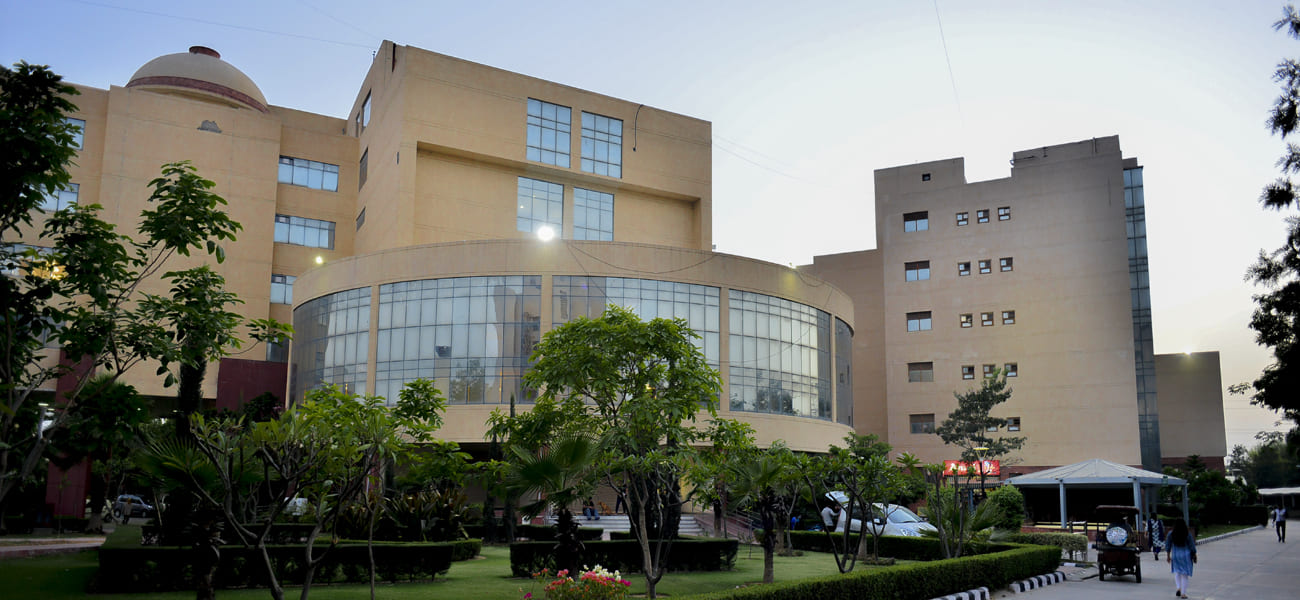
DUCET 2025 Exam Notification
DUCET 2025 Exam Notification
Delhi University Common Entrance Test (DUCET) is conducted by Delhi University (DU) for admission to various undergraduate (UG), postgraduate (PG), and doctoral (PhD) programs in multiple disciplines such as law, management, science, humanities, and commerce. Delhi University is one of India’s most prestigious universities, known for its academic excellence and highly competitive entrance process.
DUCET is a national-level entrance exam that assesses candidates on various subjects, including English, Logical Reasoning, General Knowledge, and Quantitative Aptitude.
DUCET 2025 Exam Dates
| Event | Tentative Date |
|---|---|
| Online Application Start | March 2025 |
| Last Date to Apply | April 2025 |
| Admit Card Release | May 2025 |
| Exam Date | June 2025 |
| Result Declaration | July 2025 |
| Counseling & Admission Process | August 2025 |
DUCET 2025-2026 Application Process
Candidates must follow the below steps to apply for DUCET 2025:
- Mode of Application: Online
- Official Website: www.du.ac.in
- For Registration use a valid email ID and phone number.
- Fill in Personal & Academic Details correctly in the application form.
- Upload Documents: Recent passport-size photograph, signature, and necessary certificates.
- Pay the Application Fee via debit/credit card, UPI, or net banking.
- Submission: Complete the form and save a copy for future reference.
DUCET 2025 Exam Application Fee
| Category | Application Fee |
|---|---|
| General/OBC | ₹1,000 per course |
| SC/ST/PwD | ₹500 per course |
DUCET 2025 Eligibility Criteria
For Undergraduate (UG) Programs
Education Qualification: Candidates must have passed 10+2 from a recognized board with a minimum percentage as required by their selected program.
Age Limit: No age limit for UG admissions.
For Postgraduate (PG) Programs
Education Qualification: Candidates must have completed a Bachelor’s degree from a recognized university with the minimum required percentage.
Age Limit: No age restriction for PG programs.
For PhD Programs
Education Qualification: Candidates must have completed a Master’s degree in the relevant field with at least 55% marks (50% for SC/ST/OBC/PwD).
Age Limit: No age limit for PhD admissions.
DUCET 2025 Reservation Policy
| Category | Reservation |
|---|---|
| Scheduled Castes (SC) | 15% |
| Scheduled Tribes (ST) | 7.5% |
| Other Backward Classes (OBC) | 27% |
| Economically Weaker Section (EWS) | 10% |
| Persons with Disabilities (PwD) | 5% |
DUCET 2025 Exam Pattern
| Exam Feature | Details |
|---|---|
| Exam Mode | Online (Computer-Based Test) |
| Exam Duration | 2 Hours (120 Minutes) |
| Type of Questions | Multiple Choice Questions (MCQs) |
| Total Questions | 100 |
| Maximum Marks | 400 |
| Marking Scheme | +4 for each correct answer, -1 for incorrect answers |
| Test Language | English |
- Reading comprehension passages with analytical questions.
- Grammar-based questions on error detection and sentence improvement.
- Vocabulary questions including synonyms, antonyms, and idioms.
- Sentence completion and para jumble exercises.
- Current affairs covering national and international news.
- History-based questions on major events and movements.
- Geography-related questions on physical and political aspects.
- Science and technology updates on recent innovations.
- Economic and financial awareness including government schemes.
- Legal aptitude covering basic legal principles and terminology.
- Questions on the Indian Constitution, fundamental rights, and duties.
- Criminal law-based questions on offenses and punishments.
- Contract law topics including agreements and legal obligations.
- Legal reasoning questions assessing logical application of principles.
- Logical reasoning questions on puzzles and seating arrangements.
- Syllogisms and deductive reasoning exercises.
- Coding-decoding and blood relation problems.
- Series completion and analogy-based questions.
- Critical reasoning covering assumptions and argument evaluation.
- Arithmetic questions on percentages, ratios, and proportions.
- Profit and loss calculations with financial concepts.
- Time, speed, and distance-based problems.
- Probability-based questions and statistics concepts.
- Data interpretation questions on graphs, charts, and tables.


